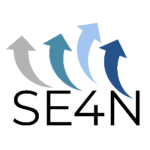 Business, financial and operational professionals love concepts related to financial forecasts. It is our way to view an abstract complicated plan in terms of dollars and the impact on resources both positive (surpluses – add to resources) and negative (deficits – use of resources). But outside our inner-circle, forecasts are often viewed with misunderstanding, trepidation and sometimes even fear. Taking a “Sketch” approach can help people to embrace financial forecasts, enhance engagement and be more confident with planning for new projects and efforts.
Business, financial and operational professionals love concepts related to financial forecasts. It is our way to view an abstract complicated plan in terms of dollars and the impact on resources both positive (surpluses – add to resources) and negative (deficits – use of resources). But outside our inner-circle, forecasts are often viewed with misunderstanding, trepidation and sometimes even fear. Taking a “Sketch” approach can help people to embrace financial forecasts, enhance engagement and be more confident with planning for new projects and efforts.
At a basic level a financial forecast is a fiscal and financial management tool that attempts to model future financial outcomes. A financial forecast can be prepared for almost anything from a new small project, to general growing of operations, to adding major strategic partnerships or just used to prepare multi-year budgets for different scenarios to see how potential future efforts will impact financial resources.
This sounds straight-forward, but people have a general anxiety of numbers and a forecast sounds like numbers on steroids. To address these anxieties, consider taking a sketch approach, replacing the word forecast with the word sketch.
The visualizations related to a sketch conjure images of a rough draft, informal pencil drawing, outline, etc. all of which appear softer and less ridged and complicated than a forecast. However, take these visualizations to heart and use them two ways, 1) to simplify and focus your financial modeling and 2) to lower temperatures and raise engagement.
Financial forecasts are always a guess often using complicated modeling assumptions in attempts to make the guesses more accurate. Instead simplify the process to focus on just one or two key assumptions “sketching-out” a financial calculation based on these key assumptions. Keep the sketch focused and centered on the new or major changing circumstances showing expected related outcomes resulting from the key assumptions.
Next, use the lower key approach to engage individuals in the process asking them for reactions, comments, input and even their opinions related to the sketch. Referring to the simplified forecast as a sketch will lessen hesitations to engage.
A quick story. An arts-therapy nonprofit that was weigh-down by legacy programs and operations was hesitant to explore making changes. After meeting with the board and talking to the Treasurer, one point of emphasis kept popping up that the board of mostly artists was petrified of reviewing and discussing financial forecasts. During our discussions, the treasurer commented that the forecast is just a sketch of future possibilities. The light went on. We immediately started calling the forecast a sketch. Barriers to engagement just melted away. Artists are always sketching out their future artworks.
It is OK to just think about your financial sketch as a simplified and condensed financial forecast. Hesitancy will disappear, engagement will increase, and new ideas will flow. Visit www.se4nonprofits.com for other related articles, resources, and videos.
Leave a Reply